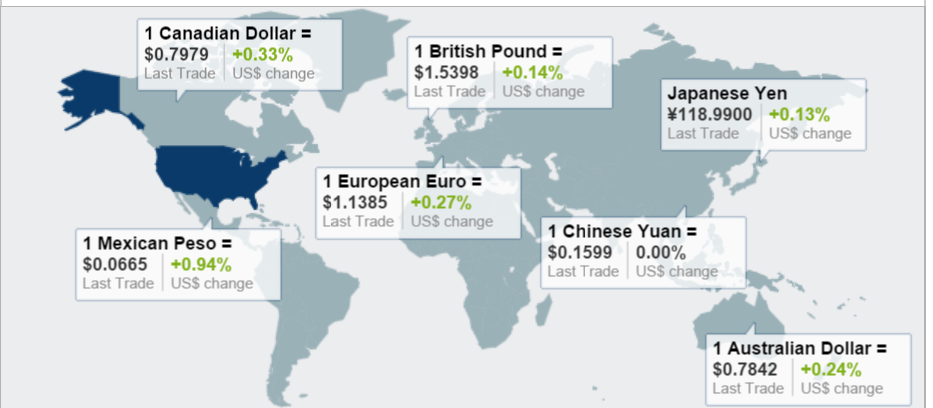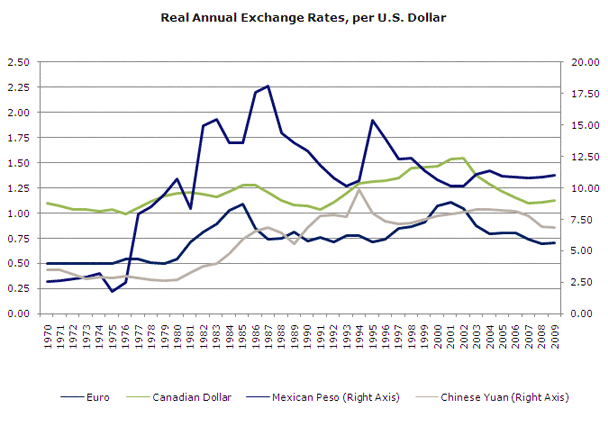Currency Exchange Insights
Post on: 5 Май, 2015 No Comment

In order to improve one’s understanding of how the currency exchange (Forex ) market works, it is imperative to know the factors that impact currency exchange rates. The exchange rate is considered to be among the three most important determinants of a country’s relative economic status. Currency exchange rates are largely determined by supply and demand factors, which in turn are influenced by several factors. These factors may be broadly categorized as follows:
Economic Factors
The several economic factors that have an impact on the currency exchange rates include inflation, interest rates. current account levels and trends, along with government budget deficit/surpluses and economic growth.
- Inflation: The rate of inflation has an inverse relationship with the value of a currency, since a higher inflation rate means a lower purchasing power relative to other currencies. By the same logic, a country having a lower inflation rate would have a higher currency value because of a higher purchasing power of the currency relative to other currencies.
- Interest Rates: A high interest rate translates into the country presenting an attractive investment opportunity for foreign investors, thereby boosting exchange rates. Thus, interest rates and exchange rates are directly related.
- Current Account Level: The current account reflects the balance of trade between two countries and includes all payments between them for services, goods, dividends and interest. A current account deficit, thus, depicts that a country’s spending is higher than its earnings and the country needs more foreign capital. This exerts a downward pressure on the exchange rate of the country in question. A current account surplus would have the opposite effect on currency exchange rates.
- Government Budget Deficit/Surplus: The widening of the government budget deficit adversely impacts the exchange rate of a country as the market reacts negatively to such information. This is primarily due to the fact that the default risk premium for securities in that currency rises, making investments less attractive. The shrinking of the government budget deficit or an expansion in the government budget surplus will have the opposite impact on currency exchange rates.
- Economic Growth: Other key economic indicators, including GDP growth, retail sales and employment data, also have an impact on a country’s currency exchange rate.

Political Factors
Foreign investors are on the lookout of countries with a stable political environment, since this reduces the uncertainty surrounding their investments. Political turmoil usually has a negative impact on the economy, hence investing in that country’s currency may not seem like a wise idea.
While an exhaustive list of the factors impacting currency exchange rates would be extremely lengthy, the aforementioned factors are the key forces determining the value of a currency.














